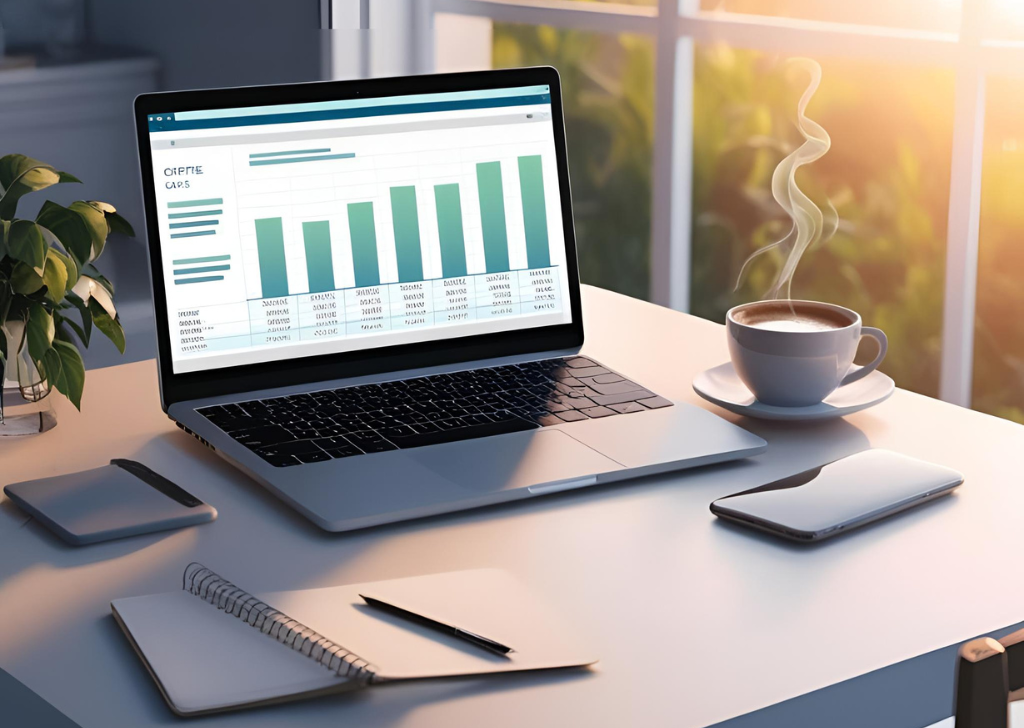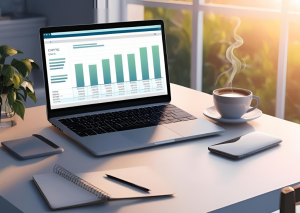Financial management may be a demanding and tedious process. Attempting to keep up an effective financial situation while keeping track of spending, bills, and savings may be difficult. Financial automation can help with this. By automating financial operations, you lessen the time and effort you spend managing your money by establishing mechanisms that will automatically take responsibility for it for you. Automation preserves time, which is its greatest benefit. Having the proper processes in place allows you to focus on long-term financial objectives and keeps your financial journey on track by relieving you of the daily financial chores.

Moreover, automation gives you the ability to follow a budget and make consistent progress toward your fiscal objectives. Automation guarantees that you regularly set aside money, despite distractions and temptations, whether you are saving for retirement, an emergency fund, or a specific financial goal. You may more successfully develop money and accomplish your long-term financial goals with this methodical strategy. Placing your money on autopilot makes life easier and improves your financial health by lowering the likelihood of mistakes, excessive spending, and late payments, all of which can negatively affect your credit score and eventually culminate in a more secure and streamlined financial journey.
Key Features and Tools for Automation
Automated financial systems make making financial decisions, managing your money, and saving money easier. You can automate payroll direct deposit, periodic bill payment, and savings account setup. Usually provided by businesses, direct deposit necessitates paperwork from your HR department. This makes tracking and monitoring unforeseen or out-of-control costs easier by enabling you to review and search transactions as well as obtain comprehensive spending assessments.
Furthermore, automation can assist you in automatically paying bills and statements for services like mobile phone and utility bills. You can use credit card accounts, online bill payment platforms, or directly communicate with each business to do this. Paying yourself first allows you to save money without having to make a deliberate choice. With your bank, you may set up automatic transfers from checking to savings accounts and designate distinct savings accounts for particular uses.
You may also save automatically by setting up contributions to your employer’s retirement plan. Your paycheck includes a percentage of your compensation that is subtracted before it is included.
Using the expenditure tracking tools that major banks and credit card providers offer can also help with budgeting. These characteristics automatically record and categorize every payment, deposit, and purchase.
Step-by-Step Actions to Automate Finances
If you take these actions, automating your money may be a straightforward process:
1. Initiate direct deposit: Most employers allow paychecks to be deposited directly into your bank account. To set up this function, get the banking details you need from the personnel section of your business. You are going to conserve time and avoid unnecessary bank trips by doing this.
2. Configure automated payments to service providers and creditors: The majority of service providers and creditors enable automatic bill payment. To prevent processing costs, set up automation independently with each source.
3. Automate emergency fund contributions: After all your payments are made, designate a certain amount to be sent from your checking account to a savings or emergency fund. This saves you money by putting money away for you.
4. Automate retirement account deposits: Set up an automated contribution system for your employer’s retirement plan. Your income is automatically deducted and used to fund your retirement account with a predetermined percentage.
5. Automate deposits to other savings accounts: You may choose the frequency and quantity of automated transfers into other savings accounts, including brokerage accounts.
Benefits and Cautions of Financial Automation
The time and stress savings that come with automating your money are a major advantage. Spending a few hours per week organizing statements and invoices and remembering deadlines is not unusual. However, regular deposits and invoices do not have to consume your precious time. You will have more time for earning money or money-saving objectives if you spend less time on things like bill payments or going to the bank every two weeks.
Automation ensures that your planned payments are made on time and without exception, saving you a significant amount of time. Reporting invoices to the three major credit agencies impacts your credit score.
Maintaining and achieving savings targets while sticking to your budget is another benefit of automating your accounts. It eliminates the desire to deviate from your budget and establishes positive, long-lasting habits.
Financial automation can resolve the difficult and time-consuming process of managing funds. It entails putting in place mechanisms to manage financial duties, saving time and effort on manual administration. Financial automation has several benefits, such as enhanced cost-effectiveness, efficiency, and accuracy. Automated technologies eliminate human mistakes in financial administration, guaranteeing precision and error-free results. Additionally, they enable quicker work completion, which frees up more time for concentration. Automation can also lower the fees and expenses related to human operations, including paper bills or mailing. Also, financial automation alleviates anxiety by guaranteeing accurate and effective completion of financial chores, streamlining the financial management process, and helping you attain financial objectives.

Avoiding Pitfalls in Financial Automation
Although automating your money offers many legitimate benefits, there are also some possible drawbacks that you should be aware of and attempt to avoid.
You could be charged for billing mistakes, pricing adjustments, interest increases, additional fees, or other overages if you don’t notice them. You can identify problems that require attention by using spot-checking, account monitoring, and alerts or notifications. Also, you should be able to spend a bit more time ensuring that everything is precise and on track since you won’t have to worry about performing routine money management activities.
Automated withdrawals from your bank account may also cause overdraft penalties and an overdrawn balance if the payment schedule is not in line with when you get your salary. Always pick a period in the month if you are sure there will be enough money available to cover this cash flow shortage.





